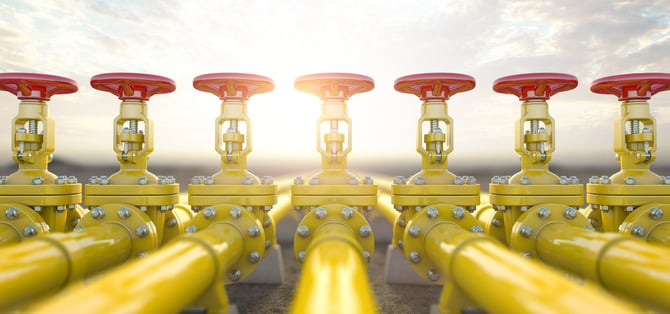European Gas Prices Surge on Russia Pipeline Delays

Russia’s Nord Stream 2 gas pipeline faced fresh commissioning delays as crucial approval from the German regulator was further delayed this week.
European gas prices rose sharply on the back of this news, as the pipeline is now only expected to be ready to produce gas in Q2 of 2022. This diminishes any hopes of increased gas supplies to Europe in the crucial winter months.
The Netherlands, considered a benchmark gas price indicator for Europe, reported a November gas price leap of 8% to €101.60 per megawatt-hour (MWh).
Europe gets 34% of its gas from Russia, and the latest delay in the long-running Nord Stream 2 saga suggests that continued opposition from the US and some European states is having a bearing on the project.
Analysts are concerned that high gas prices will increase inflation levels, which are heating up across Europe.
What does this mean for me?
The Nord Stream 2 story is a combination of geopolitics and economics. American and European critics of the pipeline say it will make Europe too reliant on Russia for gas. On the other hand, economists realize the value of increasing gas supply into the market quickly to reduce the demand crunch, thereby reducing gas prices, and ultimately, helping reduce inflation.
For commodities tradera, this news could guide trading strategy on European energy-based commodities for the short- to medium-term.
More News

Copper Prices Head Into Uncharted Territory

Silver’s Surge Shows Rate-Cut Bets and a New Layer of Trade Risk
.webp)
Gold’s Breakout Year Sets a High Bar for 2026
.webp)
Europe’s Gas Chill Turns Into a Price Rout

The Rare Earths Boom Driving a New Global Supercycle
.webp)
Brent Rises as Fresh U.S. Sanctions Choke Russian Oil Exports

Global Wind Market Set to Hit $304 Billion by 2029
.webp)